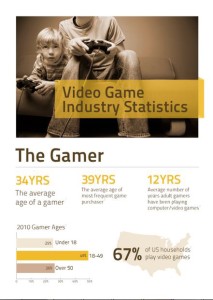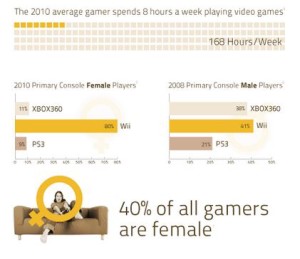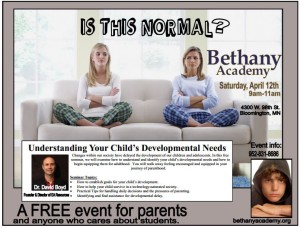 One principle of writing is to write about what you know about. While all writers sometimes break that rule, video gaming is one topic that I know very well. My gaming began in the early days with Pitfall, Pacman, and Frogger. It became an obsession when my mother bought me a Nintendo for Christmas (she still regrets that day). Currently, my favorite games include: Marvel Legos, Clash of Clans, Game of War, and Skyrim.
One principle of writing is to write about what you know about. While all writers sometimes break that rule, video gaming is one topic that I know very well. My gaming began in the early days with Pitfall, Pacman, and Frogger. It became an obsession when my mother bought me a Nintendo for Christmas (she still regrets that day). Currently, my favorite games include: Marvel Legos, Clash of Clans, Game of War, and Skyrim.
In my life, I have often used my love for gaming to build relationships with other gamers within the religious community. However, many churches do not know how to engage this segment of our society. I actually find that church communities are hostile to those who enjoy gaming.
Why do we celebrate when people watch hours of sporting events a week (and even fantasy sporting events); and yet if someone spends that same time playing video games, they are labeled as immature, nerdy, and lazy?
If your community is ready to embrace and engage gamers, here are few things you should know.
1. The gaming industry is not something to ignore.
About two-thirds of Americans (211.5 million) play video games in the U.S (statistics). This means that your church is filled with gamers, but many of them are afraid to admit it due to the negative stereotypes placed on gamers by judgmental Christians.
Not only are gamers influential by numbers, but many gamers have financial resources. Although I do not spend much money on this hobby, most gamers are willing to spend money. (I buy clearance used games, and never pay for game up-grades) Consumers spent 20.77 billion dollars in 2012 on this industry. In my small clan of 100 people in Game of War, the group probably spends approximately $8000 a month. This is not in subscription fees to play, but for added game bonuses.
I do not think that the church should start producing Christian video games, or provide gaming counsels during the worship services. I am not saying that the church should hold HALO tournaments (a top-grossing game), or promote Grand Theft Auto. However, the church needs to begin discussions about the ramifications of gaming on our society, our faith, and the church.
2. The gaming industry is breaking stereotypes.
The gaming community is not a nerdy, reclusive segment of our society. While there are people who are both nerdy and reclusive in this community, gamers can no longer be stereotyped. Most people would envision the gaming community to be composed entirely of adolescent and emerging adult males. However, the statistics show a much broader image. Only 25% of gamers are in high school, while 26% are over the age of fifty. (This statistic shocked even me, because this group didn’t grow up on Nintendo.)
 The gaming community is not restricted to men. Statistics show that 40% of gamers are females. On-line gaming communities are FILLED with women, who are not trying to pick-up dates, but are serious about gaming. Stereotyping gamers reveals a person’s ignorance about our culture, and a lack of relevance to culture today.
The gaming community is not restricted to men. Statistics show that 40% of gamers are females. On-line gaming communities are FILLED with women, who are not trying to pick-up dates, but are serious about gaming. Stereotyping gamers reveals a person’s ignorance about our culture, and a lack of relevance to culture today.
The church can engage gamers when negative stereotypes are removed from the activity. We don’t shame people from watching television, playing sports, or watching sports. Why are gamers mocked publicly in messages and characterized as immature? I believe this causes many gamers to not share who they are at church because of their fear of being publicly shamed. Discernment should be used as to what a person is allowing into their thoughts, but gaming is not inherently evil. Just as other hobbies are not.
The church has the opportunity to show the gaming community that they are an important part of our society, and that their faith matters in our world. Look for opportunities to share examples and stories from the gaming world. Video games examples can be found that cover a range of topics including: purity, values, bullying, teamwork, and courage.
3. The gaming community can be mobilized the Kingdom.
Gamers can be mobilized not because of their love of games, but because they are followers of Christ who have the Spirit working within them.
Gaming is not my life. It is a hobby. When I engage my hobby, I want to be the hands and feet of Jesus to this community. In the last month, our gaming community has discussed: death, drugs, alcohol, cancer, and unemployment. Although we live all over the globe, these connections and conversations are real.
A new message can be conveyed to gamers. I will be excited when the day comes and I hear someone talk about their gaming experience from the pulpit. I will be excited when gamers are challenged alongside other hobbyists to lay aside their recreation for the sake of the Cross. I will be excited when gamers no longer feel isolated or shamed within the church.
I am advocating for an area of culture that needs the Light. May this simply be the beginning of a discussion as to how to engage gamers for the sake of God’s kingdom.
All Statistics can be found – http://www.esrb.org/about/video-game-industry-statistics.jsp
 As I talked about to young couple starting marriage, one of their main concerns was building their credit score. Credit scores are important for couple who are considering borrowing money for larger purchases like a car or home. After two people say, “I Do.” Your credit score affects both of you.
As I talked about to young couple starting marriage, one of their main concerns was building their credit score. Credit scores are important for couple who are considering borrowing money for larger purchases like a car or home. After two people say, “I Do.” Your credit score affects both of you.











 I am not a fan of generation wars. Tom Brookaw’s book The Greatest Generation is a great tribute to those of that era; however, the title and concept that other generations are not as great is unfortunate. Maybe some people deem inter-generational conflict and competition as healthy and makes a society (and the church) more productive. This is only true if you value productivity (if that is even truly an outcome), over unity.
I am not a fan of generation wars. Tom Brookaw’s book The Greatest Generation is a great tribute to those of that era; however, the title and concept that other generations are not as great is unfortunate. Maybe some people deem inter-generational conflict and competition as healthy and makes a society (and the church) more productive. This is only true if you value productivity (if that is even truly an outcome), over unity. Do you sometimes feel as if you identify with Millennials more than your own generation? Is it because you are “young at heart”? Or do you simply have different values than your peers?
Do you sometimes feel as if you identify with Millennials more than your own generation? Is it because you are “young at heart”? Or do you simply have different values than your peers?
